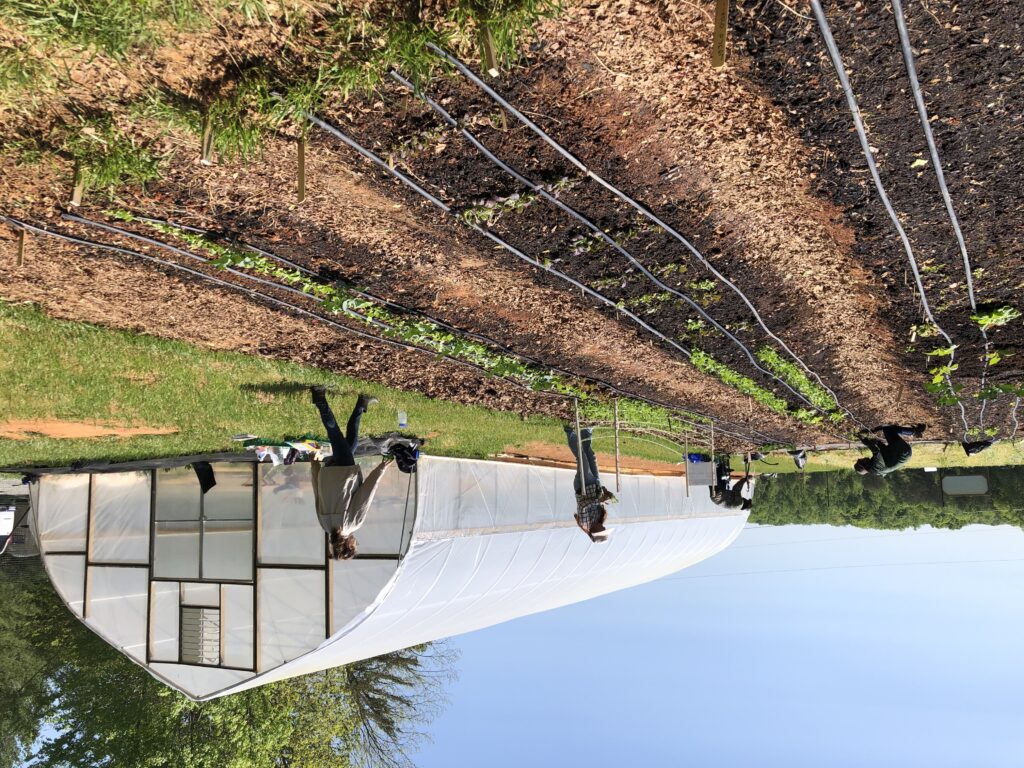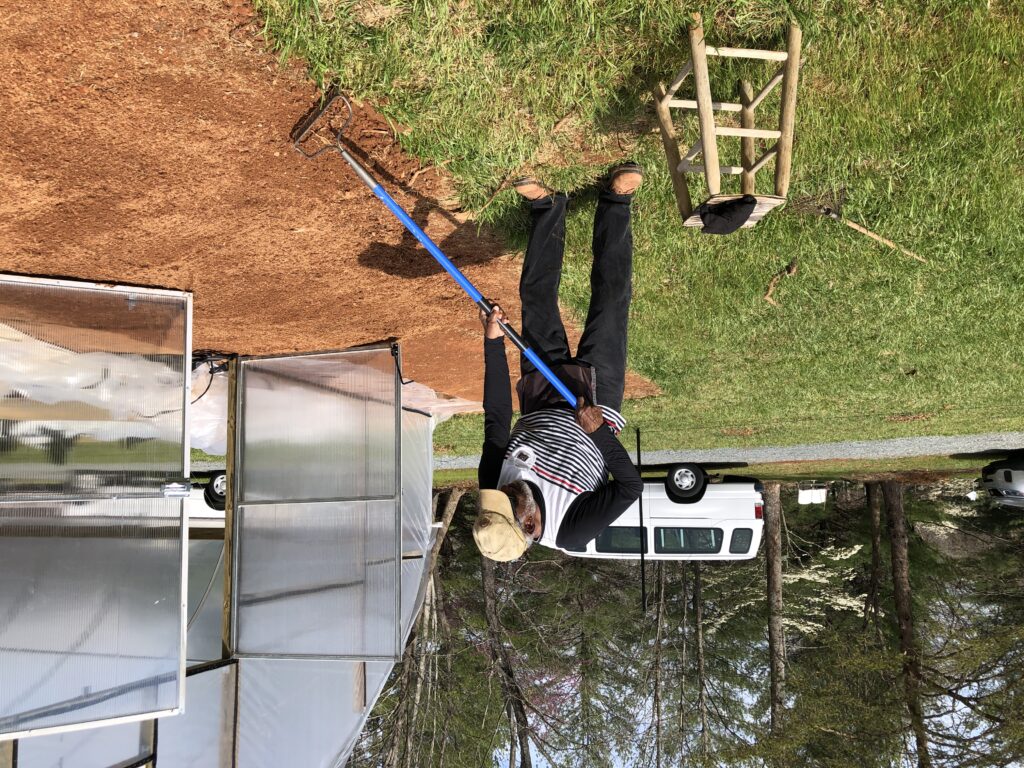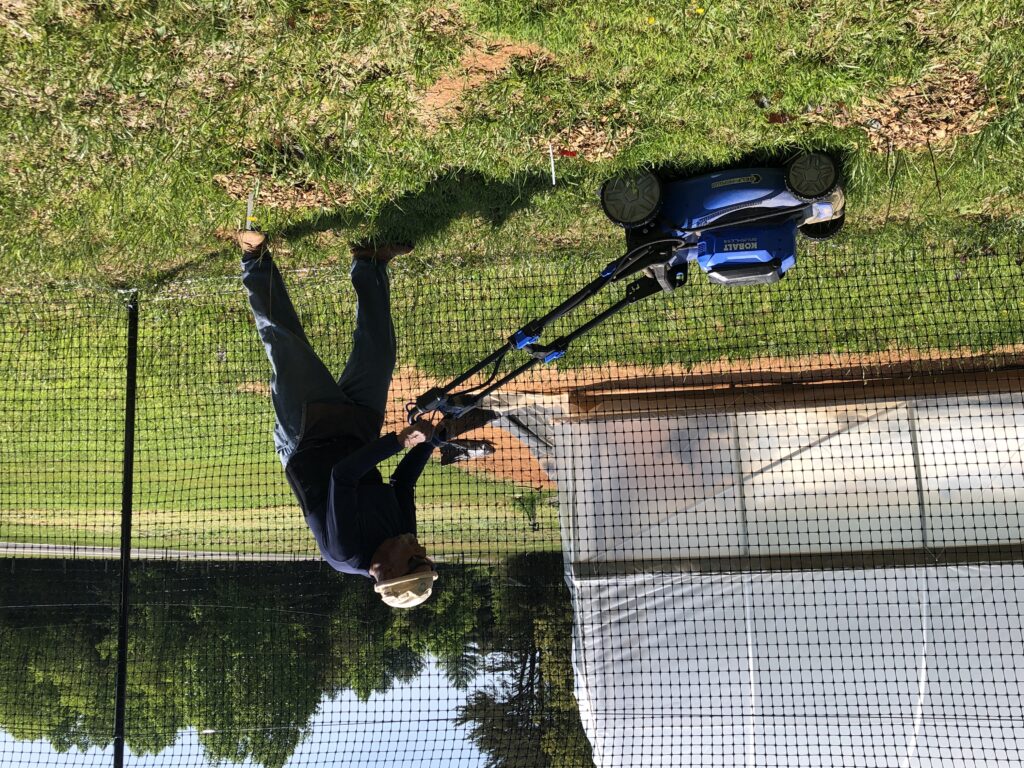Forsyth County Urban Farm School – Site History
go.ncsu.edu/readext?862417
en Español / em Português
El inglés es el idioma de control de esta página. En la medida en que haya algún conflicto entre la traducción al inglés y la traducción, el inglés prevalece.
Al hacer clic en el enlace de traducción se activa un servicio de traducción gratuito para convertir la página al español. Al igual que con cualquier traducción por Internet, la conversión no es sensible al contexto y puede que no traduzca el texto en su significado original. NC State Extension no garantiza la exactitud del texto traducido. Por favor, tenga en cuenta que algunas aplicaciones y/o servicios pueden no funcionar como se espera cuando se traducen.
Português
Inglês é o idioma de controle desta página. Na medida que haja algum conflito entre o texto original em Inglês e a tradução, o Inglês prevalece.
Ao clicar no link de tradução, um serviço gratuito de tradução será ativado para converter a página para o Português. Como em qualquer tradução pela internet, a conversão não é sensivel ao contexto e pode não ocorrer a tradução para o significado orginal. O serviço de Extensão da Carolina do Norte (NC State Extension) não garante a exatidão do texto traduzido. Por favor, observe que algumas funções ou serviços podem não funcionar como esperado após a tradução.
English
English is the controlling language of this page. To the extent there is any conflict between the English text and the translation, English controls.
Clicking on the translation link activates a free translation service to convert the page to Spanish. As with any Internet translation, the conversion is not context-sensitive and may not translate the text to its original meaning. NC State Extension does not guarantee the accuracy of the translated text. Please note that some applications and/or services may not function as expected when translated.
Collapse ▲The N.C. Cooperative Extension Urban Farm School is in session. The N.C. Cooperative Extension department is currently running a 12-week program that balances classroom lectures with hands-on labs in the garden. Celine Richard, Horticulture Agent, guides students in food production and market gardening to enable students to grow and sell their produce. Her research-based program includes industry experts who offer their expertise in the classroom and in the field. Forsyth County adults who are at a crossroads in their career path are given the opportunity to build a market garden business to feed their community with local, healthy foods.
As a part of the Urban Farm School experience, students manage field plots in a hands-on environment which is located at the historic site of the Memorial Industrial School. Until 1972 it was a working farm orphanage. African-American children were equipped with lessons of self-sufficiency and all aspects of farming. The site is adjacent to Horizons Park in northern Forsyth County.
The fertile history of this land is best told by Dr. English Bradshaw. He grew up in the orphanage and at 85 years of age, although his life has led him to many places, he has returned to Forsyth County to work on the same soil for the improvement of Forsyth County neighbors. Our conversation was framed by the first blush of spring. Close to the ground, redbuds are adorned in lavender-pink blooms and higher up the tree line is the perfect complimentary lemon lime of new tree growth. Most days when our class is on site, Dr. Bradshaw can be seen with a garden tool in hand. This is his story, in his words.
This farm used to be part of the Memorial Industrial School Orphanage, founded by R.J.Reynolds, the Hanes, the Smiths, the Babcocks, the Bittens and the Grays. These families bought this property, 485 acres, and they moved the orphanage from Belews Creek.
There were two focuses for the orphanage, one to care for neglected black children in Forsyth County and two to provide a sustainable farm system to support the orphanage. We cultivated 167 acres of land. It was one of the best farms in the county. It was a research farm working with N.C. Cooperative Extension. We ate everything from the land and raised enough to sell the excess to markets downtown and hotels such as the Robert E. Lee.
I came to live here when I was two years old. There were three cottages, called the Baby Cottage, the Big Girls Cottage and the Big Boys Cottage. Two was the youngest age that was received here and when children turned ten they moved to the Big Girls or Big Boys cottages. When a child moved up to one of these cottages they had responsibilities assigned to them. Either you could be a farm boy and work the farm or a campus boy and work on the campus. Both jobs were hard work. Clearing the land was a big job, cutting down trees and removing stumps. It looked just like that (Dr. Bradshaw pointed toward the tree line that is girdled with thick underbrush).
I was a farm boy in charge of the chickens. Boy, I had never seen so many chickens in my life. We had an abundance of chickens and milk. There were over 200 cows to be milked by hand. It was required that at 10 o’clock each day, each child had to drink a quart of milk. We also made our own butter and cheese.
The fields now being used as the lab for Urban Farm School, produced an abundance of sweet potatoes, tomatoes and berries. Across the street there was a big wheat field. On the site that is now a disc golf course was our cow and horse pastures. The reason that we are here today is that only eight children from the orphanage are still living. One of them is my sister. We decided that once the county took over this property, we wanted to preserve it. We put together a historic preservation plan and it is now registered on the state and national levels. We also wanted to maintain the original purpose of serving underserved children. Our original vision was to create a foster care home to keep families together instead of separating the children from their parents. It was too much of a heavy lift for us. We kept on plugging.
COVID really brought to light the vulnerability of less advantaged communities to nutritious food shortages. We said we would focus on the farm. We went to the county and they jumped right on it. We are renting these two parcels of land for a dollar. We wanted to get the N.C. Cooperative Extension involved because we really wanted to expand learning opportunities for people that want to become farmers. This is where we are today.
I am happy that Horizons Residential Care Center is also on site because they also provide purpose and services for exceptional children that need assistance. The land is still fulfilling its purpose. If it had not been for this land, I would not be here. The land gave me my life. I’m going to do my best to see if it can give life to others. That’s what my purpose is. We are not in competition with anybody, to out muscle or out shine. We just want to provide food and learning opportunities.
To learn more about the N.C. Cooperative Extension Urban Farm School, please contact
Urban Agriculture Agent, Celine Richard, cvrichar@ncsu.edu, 336-703-2869
N.C. Cooperative Extension, Forsyth County Center, will offer the next 12-week session of Urban Farm School in the spring of 2023.







